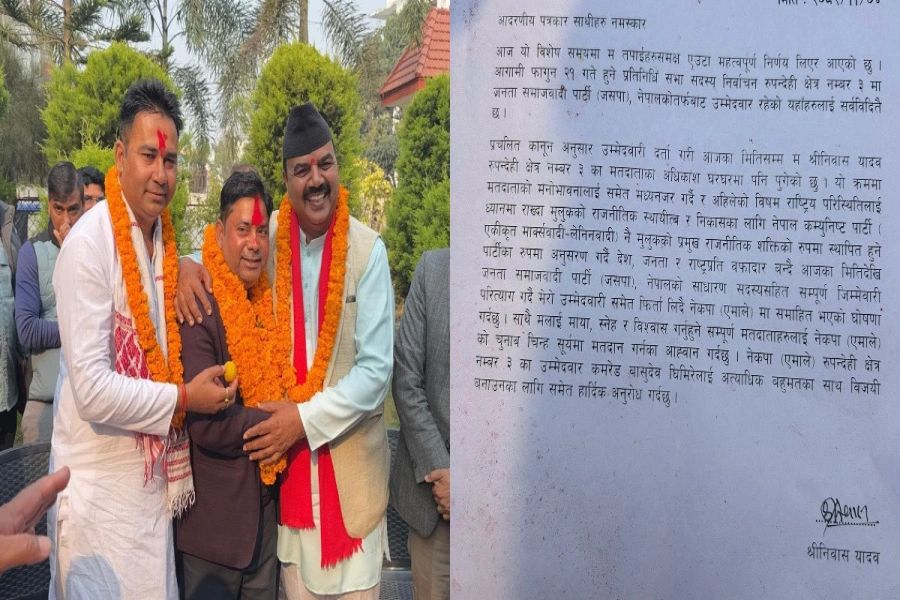KATHMANDU, Mar 19: Opposition parties have taken strong exception to a draft bill that allows the prime minister to independently mobilize Nepal Army. The Bill on Work, Responsibility and Rights of the National Security Council, awaiting approval of the federal parliament, proposes added powers to the prime minister to deploy army through cabinet decision in the case of a national emergency.
Under the existing laws, Nepal Army can only be mobilized through recommendation of the National Security Council which, in turn, needs to be endorsed through the cabinet before receiving the final nod from the president. The proposed bill still makes it binding for the government to take the president’s approval for army mobilization.
The main opposition Nepali Congress has criticized the proposed bill, saying that the provision would infringe the constitution and give rise to dictatorship.
“NC strongly opposes the approval of the bill in its current shape. NC warns the government against moving in a direction that could adversely affect the longevity of the democratic constitution,” NC spokesperson Bishwa Prakash Sharma has said in a statement. In a separate statement, NC Chief Whip Balkrishna Khad also urged the government to revise the bill.
NC opposes bill that allows PM to mobilize army at his discreti...

Naya Shakti Coordinator Baburam Bhattarai on Monday said that the bill was an attempt to clear ways for a coup. Bhattarai said that the government was trying to undermine parliamentary governance system through planned efforts to consolidate power by bringing several institutions under the prime minister.
Since coming to power, Prime Minister KP Oli has already brought several offices including the Money Laundering Investigation Department, Inland Revenue Department and National Investigation Department under the PMO.
Once endorsed, the proposed bill will give sweeping powers to the prime minister wherein he could exercise discretionary powers for army mobilization for several months.
However, the Security Council comprising seven members must endorse the proposal before it is tabled in parliament.
“In case of a serious national emergency or when any delay in army mobilization would cause such an emergency and a meeting of the security council is not immediately possible, the council chairperson shall recommend to the government to mobilize the army,” reads section 6(3) of the bill.
The Security Council shall also recommend deployment of the army for the security of projects, places of national importance and heritage sites. This provision has been included following concerns over security for mega projects and for foreign investments in the country.
The government has for the first time drafted a separate bill for the Security Council, in line with the constitutional provisions. It has been functioning under Section 6 of the Nepal Army Act. The constitution has envisioned a separate federal law to define the duties and responsibilities of the council.
Among other things, the proposed bill requires the security council to recommend criteria for the use and coordination of assistance from a foreign army during national disasters, draft policy related to weapons and armaments needed for the security bodies , and recommend to the government about bilateral or multilateral assistance to Nepal Army.
Proposing expansion of its jurisdiction, the bill has authorized the council to seek information, records or suggestions from the central and provincial governments about issues of national interest, security and defense.
Similarly, the Security Council shall advise provincial and local governments on national security concerns. The bill has proposed the attendance of at least five members of the seven-member Security Council to form a quorum for meetings.



































